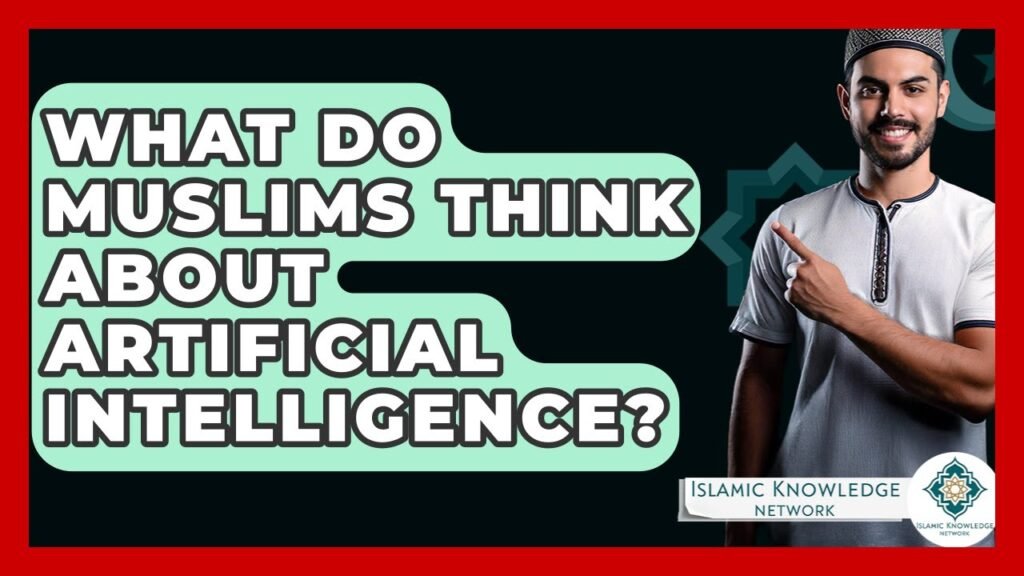Disclaimer:
The content published on this website is provided for general informational purposes only. Articles are generated with the assistance of artificial intelligence and are reviewed periodically; however, accuracy cannot be guaranteed in all cases. Readers are encouraged to verify important information from reliable and authoritative sources before relying on it. The website does not intend to mislead, and any errors found will be corrected when identified.
What Do Muslims Think About Artificial Intelligence? – Islamic Knowledge Network
As the world rapidly evolves alongside technological advancements, the discourse surrounding artificial intelligence (AI) becomes increasingly pressing. For Muslims, navigating this complex landscape involves not only the examination of AI’s capabilities and implications but also a deep exploration of its ethical, moral, and religious ramifications. Through the lens of Islamic teachings, believers seek to understand how AI aligns with their values and community principles, fostering a dialogue that considers both the potential benefits and challenges of this innovative frontier.
At Airlink Hajj and Umrah, we are committed to providing comprehensive updates on the intersection of technology and spirituality, including the role AI may play in enhancing religious practices. Our blog serves as an essential resource for those seeking knowledge about Hajj and Umrah, while also addressing the impact of emerging technologies on Islamic life. Join us as we delve into Muslim perspectives on AI, exploring how faith and innovation can coexist harmoniously in a rapidly changing world. Stay connected with our updates for the latest in Hajj and Umrah as we embark on this enlightening journey together.
What Are Muslims’ Views on Artificial Intelligence?
The views of Muslims on artificial intelligence (AI) are as diverse as the community itself, reflecting a spectrum of opinions influenced by cultural, ethical, and religious considerations. Many Muslims appreciate the potential of AI to enhance various aspects of life, including healthcare, education, and even spiritual practices. For instance, AI can facilitate online learning about religion and make Islamic teachings more accessible.
Conversely, some Muslims express concerns regarding the ethical implications of AI, particularly around issues like privacy, surveillance, and decision-making biases. The teachings of Islam emphasize the importance of justice and ethics, prompting a dialogue about whether the use of AI aligns with Islamic values. Scholars and thought leaders in the Muslim community are increasingly examining how AI technologies can be developed and used responsibly, ensuring they adhere to moral and ethical standards.
As we navigate the burgeoning world of AI, it is essential to remain informed about both technological advancements and spiritual guidance. For those seeking insights into combining faith with the latest innovations, our blog at Airlink Hajj and Umrah provides valuable updates not just on AI but also on every sacred journey. Stay tuned for comprehensive information on Hajj and Umrah, where technology meets spirituality!
FAQ on What Are Muslims’ Views on Artificial Intelligence?
FAQs on Muslims’ Views on Artificial Intelligence
1. How do Islamic teachings view the development of artificial intelligence?
Islamic teachings emphasize the pursuit of knowledge; however, the development of AI must align with ethical principles and serve humanity positively.
2. Are there specific concerns among Muslims regarding AI ethics?
Yes, many Muslims express concerns about AI’s potential impacts on privacy, autonomy, and the ethical implications of decision-making, advocating for responsible use aligned with Islamic values.
3. How do Muslims perceive AI in the context of employment and job displacement?
Muslims may view AI’s impact on employment as a significant concern, emphasizing the need for societal support systems to help those displaced and promoting retraining and education.
4. Can AI be utilized for religious purposes within the Muslim community?
Yes, many Muslims see potential in using AI for educational tools, enhancing religious study, and facilitating community services, provided the applications are respectful of Islamic principles.
5. What role does the concept of intention (niyyah) play in Muslim perspectives on AI?
Intention is central in Islam; thus, Muslims may focus on the motivations behind AI development, advocating that AI should be used to promote good and avoid harm to humanity.
Mushu, an experienced Saudi Arabia traveler and writer, shares insightful tips and spiritual reflections to enhance Hajj and Umrah journeys for fellow pilgrims. He has been to Makkah and Madina from 2016 to 2023 many times and his posts will reflect this.







